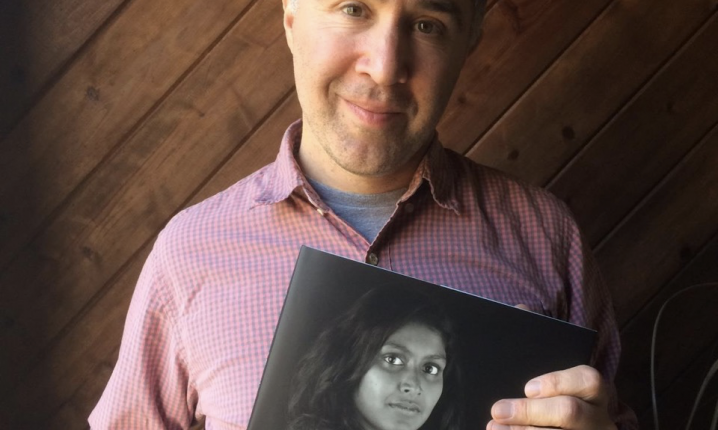By: Kollin Wasserlein, MindHandHeart
When it comes to mental illness and depression, MIT Professor of Computer Science Daniel Jackson finds “there is a big difference between the issue in the abstract and the issue in people’s lives.” While mental illness has impacted millions of people across the nation, it remains a difficult issue to understand for those who haven’t experienced it directly.
Professor Jackson was affected by news of suicides on campus in 2014, which included the death of one of his colleagues. Students were coming to his office reporting that depression was preventing them from completing their coursework. This profound sense of grief and loss felt across campus inspired him to create Portraits of Resilience, a collection of stories told by 22 MIT students, faculty, and staff, detailing their experience grappling with depression and other mental health challenges.
A portrait of the person whose story is told accompanies each story. Often the experience of depression is isolating, and anonymous accounts may stigmatize it even further. In Portraits of Resilience, the reader encounters directly those who have endured times of deep anguish — seeing their faces and reading their stories.
“In some fundamental sense these people are not ordinary because they’ve experienced life more deeply: both the highs and the lows,” said Jackson. “And they’ve often come to quite extraordinary insights.”
Jackson’s own thoughts on mental illness evolved over the course of writing Portraits of Resilience, especially with regard to coping with depression. At MIT, many people with an engineering or technical background assume that depression is problem that can be fixed like any other technical problem — and that if you can’t find a solution, you must have not tried hard enough. But Jackson notes that depression is often hard to explain, let alone to fix. Moreover, this problem-solving mindset can actually prevent people from finding the help they need.
MIT alumna Grace Taylor ’12 observes this solution-oriented approach to mental health in her essay, which opens the book: “I have many dear friends who are engineers, and who are depressed, or have difficult things going on in their life. I suggest therapy to them, and they say, ‘Why is that going to do anything?’ … I’ve talked about that before and it’s hard to talk about, and why would I talk to someone else about it? Explain to me why that’s going to do something.’ And I can’t really. I’ve been in therapy on and off for ten years, and I don’t really know why it works, but it definitely works.”
MindHandHeart, an initiative sponsored by the Office of the Chancellor and MIT Medical to promote mental health and wellbeing at MIT, raised money to distribute copies of Portraits of Resilience to the class of 2021 as part of the 2017 24-Hour Challenge. The hope is that by sharing stories of those who have battled mental health challenges and found a way to cope, readers who have their own struggles will have a resource to look to. Those who don’t struggle with mental illness will certainly at some point meet someone who does, and this book can provide them with a greater understanding of these challenges.
Portraits of Resilience provides a little package of hope for the reader, even with the often heartwrenching material within. Professor Jackson observes: “Although [the subjects] said that they wouldn’t wish their depression on anybody else, they all said at the same time that they don’t regret that they had it. They think that in some ways, although they suffered a lot, it enriched their lives.”



